Why Aren’t More People Collapse-Aware?

Becoming collapse-aware is a strange experience. You go from thinking civilization has a future—maybe even thinking its best days are still ahead—to realizing that civilization is already collapsing and has been for a while. It can be a bit disorienting.
In 2020, after several years of learning about things like climate change and sustainability, I came to the grim conclusion that the collapse will probably cut my life short, along with the lives of everyone I love and care about.
Naturally, I experienced a lot of negative emotions: fear, anger, grief, and many other feelings that are difficult to explain. One of the strangest feelings was the realization that not only is our civilization doomed, the fact that it’s doomed has been obvious for a long time, and somehow I never noticed.
Around that time, I read a wonderful book by William Kötke called The Final Empire, which explains in detail why civilization is inherently unsustainable and why it will collapse by the mid-21st century. Out of curiosity, I checked to see when the book was originally published, and it was 1993—almost 3 decades ago!
I was stunned. How was this guy able to figure out that civilization is going to collapse in a matter of decades while everybody else was still expecting a future like Star Trek? Of course, the answer was right there in the book:
“The consensus assumption of civilization is that an exponentially expanding human population with exponentially expanding consumption of material resources can continue, based on dwindling resources and a dying ecosystem. This is simply absurd.”
When I read those words, the reality of collapse became so incredibly obvious that I nearly smacked myself on the forehead. How did I not see it sooner? Of course we can’t have infinite growth on a finite planet. Of course we can’t keep expanding civilization without hitting planetary boundaries. Of cooourse!
Still, I can understand why most people in the 90s expected a bright future. Global hunger was going down, standards of living were going up, and technology was rapidly advancing. It was easy to assume that scientific breakthroughs would solve any problems that came along.
But today, the collapse is so obvious, it boggles my mind that most people are still unaware. As I explained in this article, pollution, climate change, and biodiversity loss are worse than ever, and all signs indicate that they’ll keep getting worse at an accelerating rate. And yet, people are still out there saying, “But things are better than ever!”
Imagine a married couple sitting in a doomsday bunker after a nuclear war. The husband is bingeing on emergency food, and the wife says, “Shouldn’t you slow down? We don’t want to run out of food.” And he replies, “How could we possibly run out? Look at how much I’ve eaten today!”
Right now, our civilization is bingeing on resources like forests, topsoil, aquifers, fisheries, minerals, rare-earth metals, and of course, fossil fuels. By doing this, we’ve improved the standard of living for billions of people around the world, giving some people the impression that everything is fine. But what happens when all these natural resources start to run out?
Now that I’m collapse-aware, I’ve realized that I can’t ever go back. I can’t unsee what I’ve seen. Trying to convince myself that modern civilization will survive the 21st century is like trying to convince myself that Santa Claus exists. As much as I’d like to believe it, I just can’t.
But let’s return to the question of why so few people are collapse-aware. When I was a child, I watched a John Carpenter movie called They Live. In case you haven’t seen it, They Live is about a drifter who comes upon a pair of special sunglasses that reveal the world as it really is. When he puts them on, he sees that many people are actually aliens with skull-like faces.
Possibly even more disturbing are the billboards and magazines. Instead of pictures and advertisements, they contain hidden messages like, “Obey,” “Conform,” “Consume,” “Watch TV,” “Stay Asleep,” “Honor Apathy,” “Reward Indifference,” and “Do Not Question Authority.”
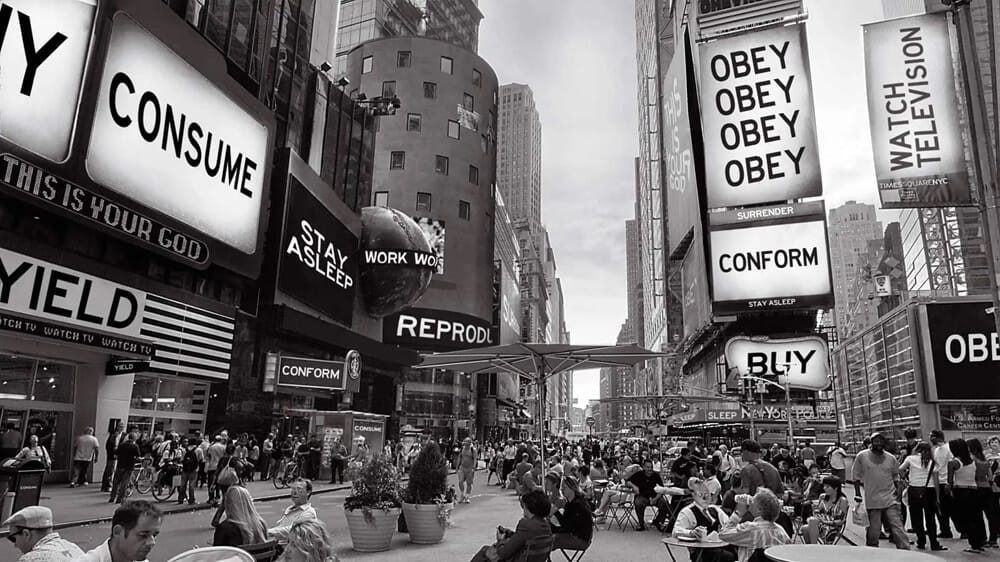
Spoiler alert: The aliens are stealing Earth’s resources and using global warming to make it more like their planet. The subliminal messages are there to keep everyone docile. Believe it or not, this movie is not based on a true story, but wow does it seem like it.
The global elites may not be from another planet, but you’d think they were given how they’re treating this one. I’m certain that many of them know damn well that their businesses and lifestyles are going to turn the planet into a post-apocalyptic wasteland, but they don’t care because they figure the collapse won’t happen until after they’re dead, or that they’ll be rich enough to protect themselves.
Even worse, they spread propaganda designed to convince people that everything will be okay. They say we’ll be net-zero by 2050, that carbon capture technology will suck all the excess CO2 out of the air, and that everyone will drive electric vehicles charged on a grid powered by renewables. Of course, they never explain how we’re going to do all this without using up our carbon budget several times over.
Anyway, this brings me to the first reason so few people are collapse-aware:
1. They’re Brainwashed
The average person may not like the mainstream media, but that doesn’t matter. When the media says something over and over again, most people end up believing it. So despite the rise of alternative media, the elites of the world are still able to convince the average person that there is such a thing as “green growth” and that there’s still time to stop the worst of climate change.
I know because I was one of those people for several years. I certainly didn’t trust the media, but when every single article or video you see about climate change ends with, “...but there’s still time…” it’s hard not to believe it. I honestly thought that if our civilization was in any real danger, we’d hear about it on the news. (Feel free to laugh at me now.)
Besides, I was busy raising a couple of toddlers, which brings me to the second reason so few people are collapse-aware.
2. They’re Distracted
In case you haven’t noticed, it’s getting really hard to make ends meet these days. Unemployment is low, but that’s because people are having to work multiple jobs just to put food on the table.
They don’t have time to read books on climate change and ecology, especially if they have children to take care of. And when they do have free time, they’re constantly distracted by ads, games, movies, videos, TV shows, social media, and a million other things vying for their attention.

It’s tempting to be angry with people for not taking the time to learn about sustainability, but when you’re exhausted from working two jobs, taking care of kids, and dealing with health problems (such as Long Covid), you can be forgiven for not studying science in your spare time.
But there’s another reason people don’t want to learn about these things, which brings me to the third reason so few people are collapse-aware.
3. They’re Afraid
Earlier this year, I warned my closest relatives about the collapse. I did it in a private Facebook group where I explained as briefly and clearly as possibly why the next few decades are going to be hell. I knew they wouldn’t all believe me and that some would probably try to convince me I was wrong.
Instead, nobody said anything. They read my post, but the only person who left a comment was someone who is already collapse-aware. The rest of them? Silence.
I was baffled. If they didn’t believe me, then why didn’t they say so? But after talking with a few of them privately, I understand why they didn’t say anything.
Because they do believe me. They might disagree on the details, but they recognize that the world is rapidly getting worse and that it’s only a matter of time before we’re all living in abject poverty. This frightens them so much that they’d rather not talk about it.
I was disappointed in them at first, but not anymore. Now I understand that they’re going through the missing stage of grief: paralysis. They’ve gotten a glimpse of what’s coming, and it’s so frightening that they’ve chosen to look away instead of face it. I also spent a year or two in that stage, so I can’t be too hard on them.
I believe millions of people around the world are stuck in this stage of paralysis. They’re smart enough to understand that things are really bad, but it’s so frightening that they refuse to think about it.
Sometimes, despite what they’ve learned, they convince themselves that somehow everything will be okay. This is called normalcy bias, and it’s one of the reasons people stay in their homes even after officials warn them that a deadly hurricane is on the way.
Berating these people won’t help. In fact, the more you tell them about the collapse, the more they’ll dig in their heels. They may even associate the collapse with you and start avoiding or attacking you. Don’t take it personally.
You don’t have to maintain relationships with people who mistreat you, but try to be patient with those who simply don’t like talking about collapse. Instead, talk to them about other things like emergency preparedness and maintaining mental health. It’s a way to talk to them about collapse without talking about collapse, and they’ll usually be a lot more receptive.
There are many other reasons people aren’t collapse-aware. I could talk about scientific reticence, manufactured consent, or the bystander effect, but I’ll save those for a future article.
To sum up, the three biggest reasons many people still aren’t collapse-aware despite signs of collapse all around us are: they’re brainwashed by the media; they’re distracted by work, family, and entertainment; or they’re simply afraid to face the truth.
In other words, they’re human beings. Rather than being angry with them, we should have compassion for them.
Again, don’t waste your time on people who treat you like crap, but for everyone else, just be patient. They’ll find out you’re right soon enough, and when that time comes, having strong relationships will be more important than ever.
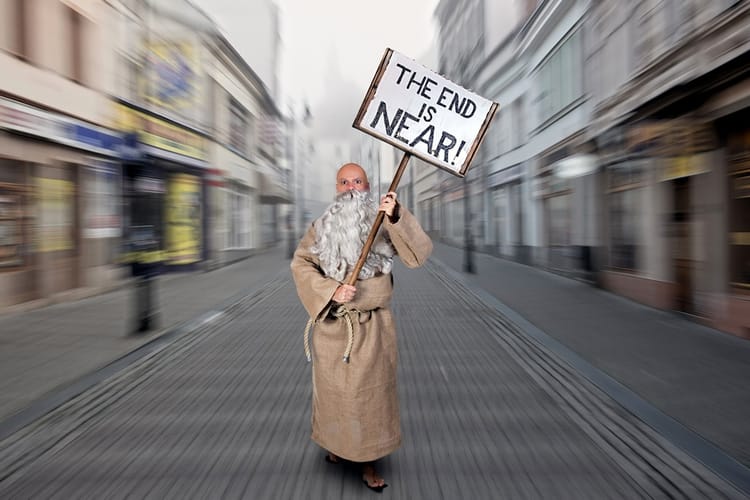

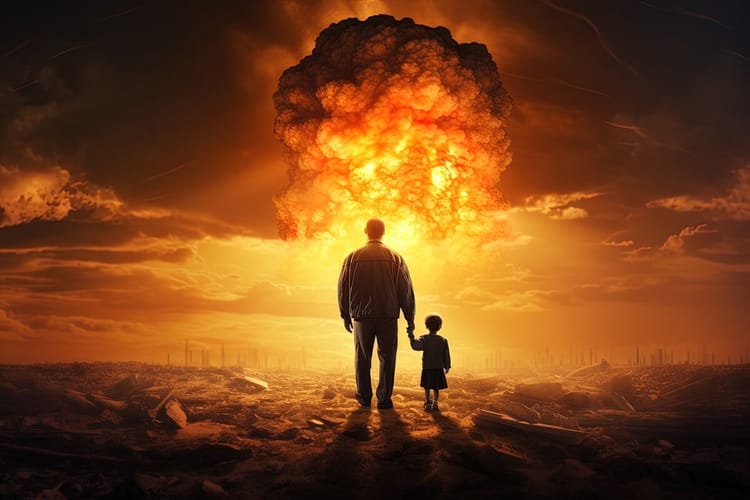
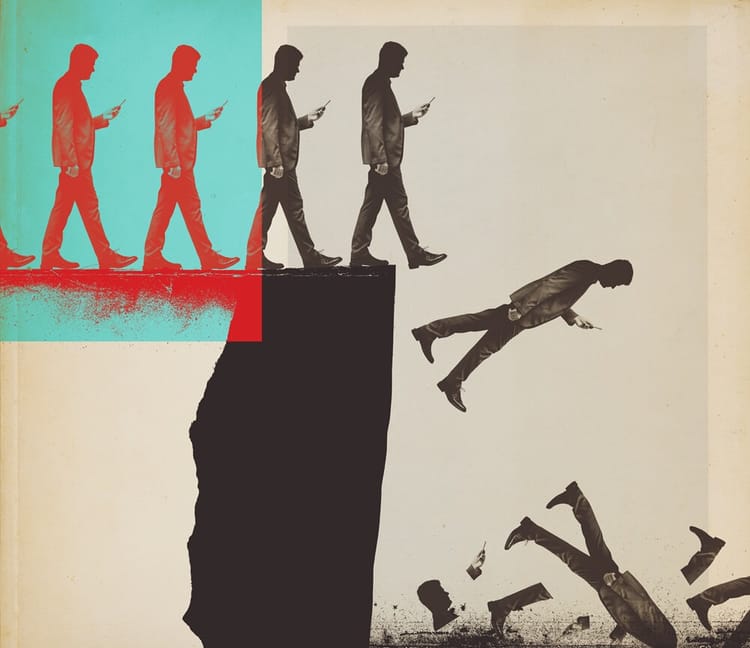
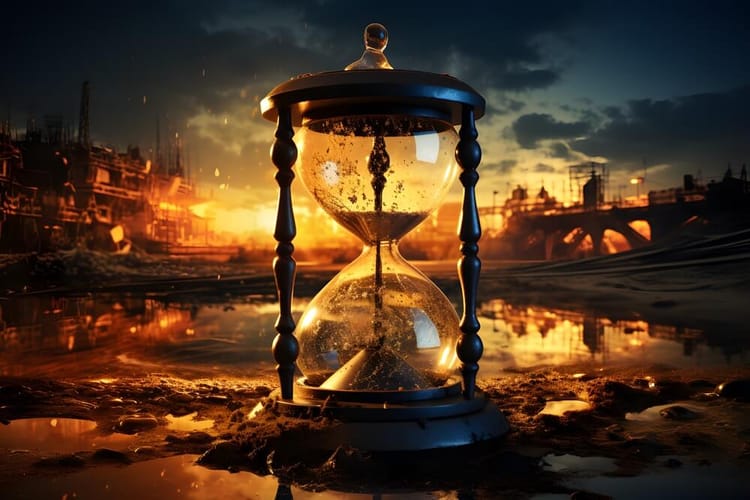
Member discussion